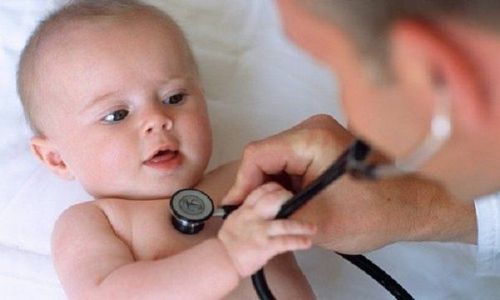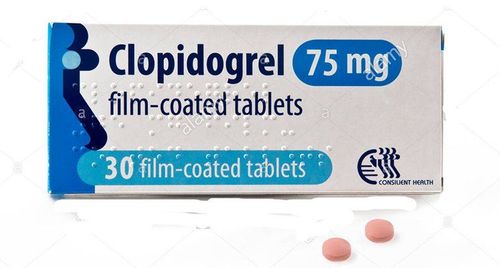This is an automatically translated article.
The article was professionally consulted by Dr. Tran Quoc Tuan - Emergency Medicine Doctor - Emergency Resuscitation Department - Vinmec Phu Quoc International General Hospital. Doctor Tran Quoc Tuan has more than 12 years of experience in emergency resuscitation.Recognizing the things that can "destroy" the heart will help you soon make lifestyle changes as well as take measures to protect a healthy heart.
1. Continue to smoke
One of the main causes of cardiovascular disease is that smoking raises blood pressure, causes blood clots and lowers HDL (good cholesterol) levels. According to the American Heart Association, smoking is one of the most preventable causes. Although smoking can be the hardest habit to quit, the beneficial effects of quitting smoking will also be greatest and immediate.When you quit smoking, your risk of heart disease drops after just a few days of not smoking. Within a year, this risk will be halved. After 10 years of living without smoke, then you are considered a person who has never smoked.
2. Ignore chest pain symptoms
When you feel a sharp pain in your chest and don't know why, it's a warning symptom that you need to see your doctor for a checkup.If you have chest pain while exercising, it is a dangerous warning sign that may be due to a heart problem. But if chest pain occurs after a full meal, it is more likely to cause stomach problems. The feeling of a heart attack is more like a crushing sensation than a physical pain. Patients tend to feel pain in the front of the chest and sometimes it extends to the shoulder, up the jaw, or down the left arm. If it feels like an elephant is sitting on your chest and you're sweating profusely, it's an emergency.
3. Genetic acceptance of cardiovascular disease
Having a close relative with heart disease is a strong predictor of your own risk of heart disease. For example, according to the American Heart Association, if a parent has had a heart attack, boys are twice as likely to have it, and in girls, this risk increases to about 70%.
Bệnh tim mạch có yếu tố nguy cơ từ di truyền
A 1998 study published in the Journal of the American Medical Association found that taking statins to lower blood cholesterol can help people with a family history of heart disease reduce their risk of heart disease. lower than those without a family history of heart disease.
But you can only proactively take the above preventive measures if you really know if heart disease runs in the family. To do this, you need to consult with doctors and geneticists.
4. No periodic health check
Without regular check-ups by your doctor, you may not realize that some of the risk factors for heart disease are going silent and hard to detect. Some common heart conditions, if there are no symptoms, are the easiest to treat, such as high cholesterol and high blood pressure.5. Lazy to exercise
Being sedentary increases the risk of heart disease, and simple physical activity has helped prolong life. Exercise helps lower blood pressure, improve cholesterol levels, lose weight, benefit blood vessel function, and reduce stress. Even if you haven't exercised in the past 20 years, it's never too late to exercise and reap the many benefits for heart health.6. Stop taking the drug
If you stop taking your heart medication, you could be putting yourself in danger. Some people think that only when they are at risk for heart disease or stroke should they use statin drugs to lower cholesterol. However, experts recommend using these drugs as a protective measure for people at risk of heart disease to prevent heart attacks and strokes. Note, the patient should never stop the medication or adjust the dose without consulting the doctor first.7. Not paying attention to the waistline
If the waist size is increasing, this is a risk factor for cardiovascular disease. Having more excess fatty tissue in your waist can mean you have metabolic syndrome. Metabolic syndrome is a combination of multiple risk factors for cardiovascular disease, stroke or diabetes and is caused by hardening of the arteries, insulin resistance, and inflammation.Huge waist doubles your risk of heart disease, That's why you need to double your efforts to get a healthy body through adopting a healthy lifestyle.

Vòng eo càng to càng làm tăng nguy cơ mắc bệnh tim mạch
8. Ignore Tachycardia Symptoms
Feeling fluttering in the heart causing discomfort in the chest, shortness of breath, you feel like you want to pass out or actually pass out, these could be signs of an arrhythmia. This is caused by a problem with electrical potential in the heart that causes the heart to beat too fast, too slow, or irregularly.If you feel the vibration for a second and it disappears, it is not a dangerous problem. You may be able to experience brief tremors due to caffeine use, chocolate, asthma or possibly some cold medications. However, if tremors occur frequently or are accompanied by other symptoms, you should seek medical attention immediately.
9. Uncontrolled blood pressure
One of the most dangerous ways to destroy the heart is to keep high blood pressure under control. But in reality, only about half of American adults with high blood pressure have the disease under control.When blood pressure gets out of control, the heart has to work harder and this can lead to heart failure. In addition, high blood pressure can cause arteries to harden, increasing the risk of heart attack, stroke, and other problems. Although the symptoms of high blood pressure are difficult to spot, it is relatively easy to diagnose. You can even check your own blood pressure with a home blood pressure monitor.
10. Eat with renunciation
Being overweight or obese contributes to heart disease, heart failure and shortened life expectancy. According to experts, you just need to lose weight moderately is enough to improve the risk factors for cardiovascular disease.You need to follow a diet with lots of fruits, vegetables and nuts; low in saturated fat, cholesterol; and almost no trans fat. This doesn't mean you need to avoid fat altogether. Fats found in fish, olives and olive oil, nuts and avocados are all heart-healthy and should be eaten in moderation.
Reduce 100 calories of calories per day, will help to lose 4.5 Kg in a year. The equivalent of a slice of bread, one part soda or half a candy bar.
The heart is an important part of the human body, so it is very important to protect heart health. You can protect your heart by changing your lifestyle, eliminating habits that are harmful to your heart, and maintaining a balanced diet with exercise.
To check the health of cardiovascular diseases and control the risk of diseases, you can visit and use the cardiovascular examination packages of Vinmec International General Hospital.
Please dial HOTLINE for more information or register for an appointment HERE. Download MyVinmec app to make appointments faster and to manage your bookings easily.
Reference source: webmd.com












